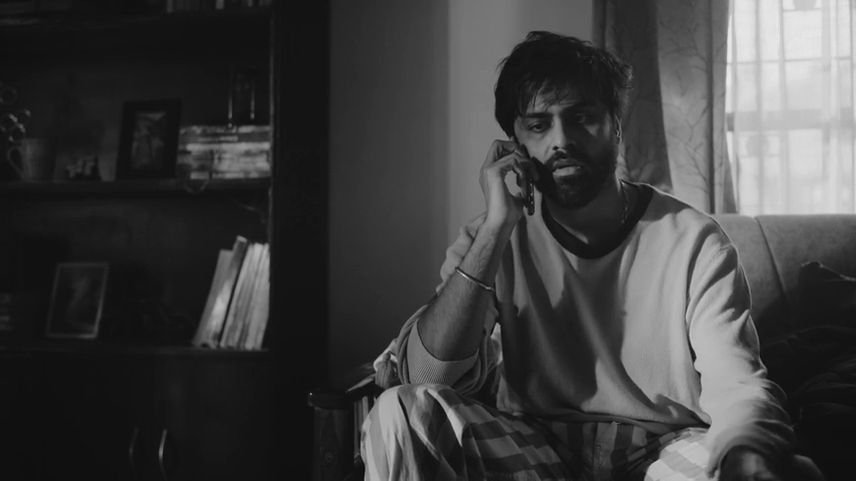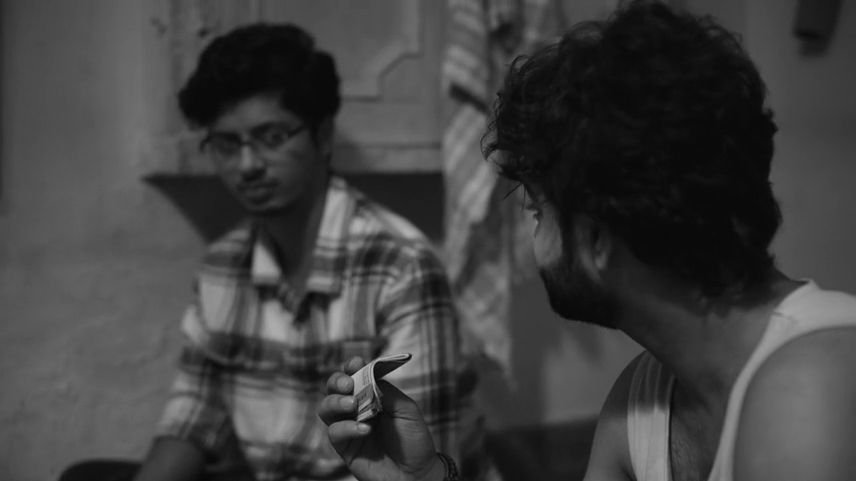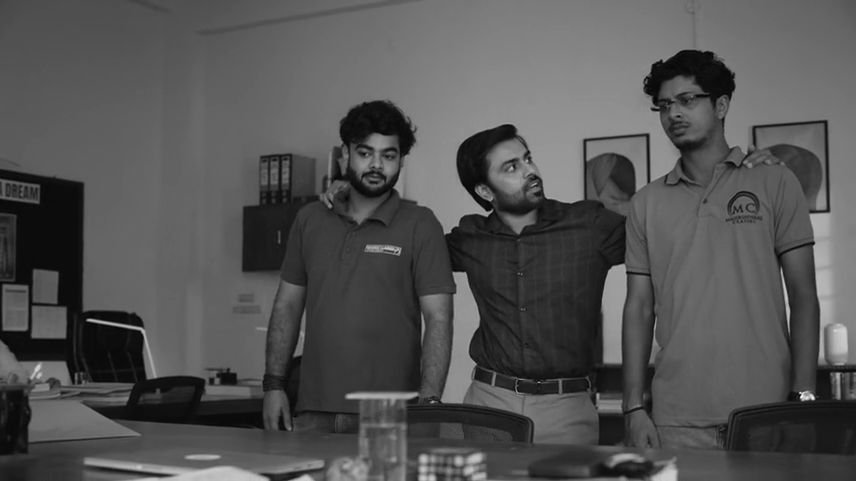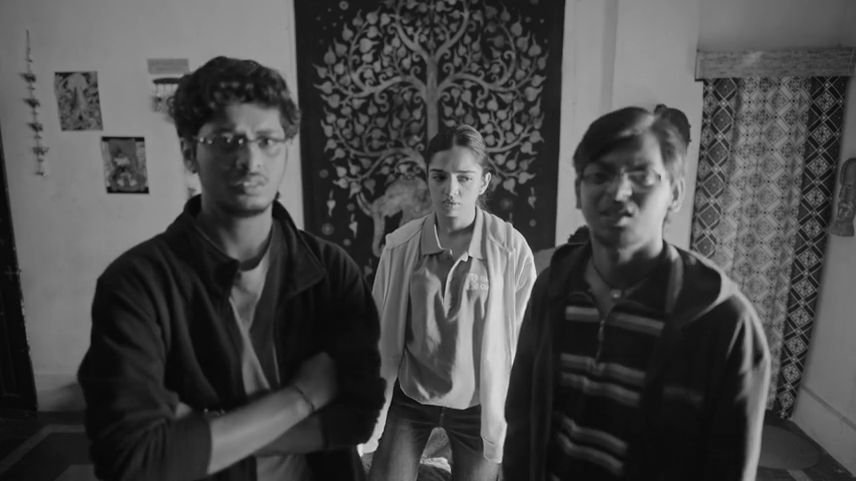Kota Factory Season 3 (Netflix) Story :-
Kota Factory Season 3 (Netflix) The daily routines and habits of Kota aspirants preparing for the IIT JEE.
Kota Factory Season 3 (Netflix) Release Date, Trailer, Songs, Cast
| Release Date | 20 June 2024 |
| Language | Hindi |
| Genre | Drama |
| Episodes | 5 |
| Cast | Jitendra Kumar, Mayur More, Ranjan Raj, Alam Khan, Ahsaas Channa, Revathi Pillai, Urvi Singh |
| Director | Pratish Mehta |
| Writer | Punnet Batra, Pravin Yadav |
| Cinematography | Shreedutta Namjoshi |
| Music | Arpit Mehta, Simran Hora |
| Producer | Vijay Koshy, Shreyansh Pandey, Raghav Subbu |
| Production | The Viral Fever |
| Certificate | 13+ |
Kota Factory Season 3 (Netflix) Review :-
Kota Factory Season 3 (Netflix) Having personally navigated the intense conflict between competitive exams that define one’s career path and school board exams, I found a poignant resonance in Vaibhav’s impassioned monologue in Kota Factory, reminiscent of Kartik Aaryan’s style in Pyaar Ka Punchnama. Balancing preparation for one invariably affects the other, highlighting the delicate tightrope students walk. While I wasn’t a Kota student, the struggle I faced years ago preparing for NEET alongside board exams felt vividly portrayed through the protagonists’ journey in their battle for JEE. Each year, millions of students confront this daunting challenge, and Kota Factory’s third season deftly captures this struggle with empathy.
The engineering aspirants, now in their second year of preparation, face mounting pressure as their final exam date approaches. Frustration, confusion, fear, self-doubt, insecurity, and helplessness loom large, triggered by the smallest setbacks. Yet, their unwavering resolve to secure a place in India’s prestigious Indian Institutes of Technology remains steadfast.
However, this time, it’s not just the students who find themselves in distress. Jeetu bhaiya (Jitendra Kumar), revered by all, is grappling with profound emotional turmoil. The tragic suicide of one of his students in the Season 2 finale has plunged him into a deep abyss of hopelessness, guilt, and depression. He avoids answering calls, prefers solitude, and remains ensconced in a cluttered, lifeless room where piles of junk accumulate unchecked. The immense burden of mentoring hundreds, both as an educator and a self-appointed elder brother, weighs heavily on him, exacerbated by his sense of responsibility for the tragedy. Seeking solace, he reluctantly turns to a composed therapist to navigate this harrowing phase.
For the first time, the show’s creators strip away Jeetu bhaiya’s pedestal and confront the attachment issues that haunt him. Now, he is a traumatized teacher grappling with the question of whether his deep emotional investment in his students’ lives is healthy or if he should establish boundaries. The moral dilemma reverberates loudly. Amidst his inner turmoil, there are poignant moments where viewers instinctively rally behind his students, feeling a deep sense of empathy. Yet, there are also instances where he inexplicably lashes out, showcasing the coexistence of paradoxes brilliantly portrayed: the therapist aptly terms it a vicious cycle of returning to familiar patterns, even if they cause harm.
The entire sequence between Jeetu and the therapist is well-crafted and presents logical arguments, but I find it somewhat discordant with the show’s core tone. While significant tragic events can indeed prompt a complete personality shift, Jeetu bhaiya’s transformation feels somewhat exaggerated in certain scenes.
Let me elaborate. Having spent many years in Kota and garnering a sizable fan following, it seems improbable that this was the first time he encountered such a tragedy, especially given Kota’s notorious reputation for student suicides.
If the intention of the creators was to depict this event as the final straw that shattered his resilient facade, it raises questions about his authenticity thus far. Was his bubbly persona never genuine? Did he mask the harsh realities with positivity? Has he abandoned his own philosophies? Was he somehow anticipating such a tragedy? Most importantly, if someone as influential as Jeetu bhaiya is unable to withstand the pressures of the flawed education system, is there any hope left for the millions of students embarking on this perilous journey? Whether there is or not remains uncertain. Regardless, witnessing someone as stalwart in physics as Jeetu bhaiya endure such anguish is deeply disheartening.
While Jeetu bhaiya’s storyline may unsettle you, the other characters—Meena (Ranjan Raj), Uday (Alam Khan), and Shivangi (Ahsaas Channa)—remain consistent, offering a familiar sense of relief. Each delivers a nuanced performance that preserves the essence of this student-centric show. Meena’s innocence remains endearing, Uday provides comic relief that lightens the mood, and Shivangi continues to exude wisdom. I appreciated the expanded role given to Shivangi this season, which acknowledges the often-overlooked efforts and challenges faced by medical assistants without adequate recognition.
The show’s creators also shed light on the impact of toxic commercialized education on teachers, a topic previously touched upon in the first season when a chemistry teacher was unjustly fired due to false student feedback. In the third season, this theme is explored more deeply. We witness teachers grappling with the decision to remain in Kota, overwhelmed by guilt, and frustrated by their inability to effect meaningful change despite their earnest efforts. They face the dilemma of balancing their roles as educators and administrators within an educational institution. Despite these broader themes, the primary focus remains on Jeetu bhaiya’s journey.
Kota Factory continues to uphold its distinctive cinematographic style with precision. The frames are meticulously composed, featuring symmetrical prop placements and abundant visual metaphors. Some scenes resemble meticulously arranged works of art, echoing the equations that Jeetu bhaiya diligently scribbles on the iconic board. Cinematographer Shreedutta Namjoshi deserves praise for maintaining the show’s signature visual aesthetic. Notably, this season stands out as the first in Kota Factory’s history to exclusively employ monochrome shots, eschewing any colored footage (the first season included Maheshwari Classes’ promo, and the second featured orientation in colored frames).
Despite adeptly addressing both new and recurring challenges, the overall tone of the series has subtly shifted, leaning towards a more somber atmosphere. Laughter is less frequent, replaced by deeper emotional resonance.
I wonder if TVF has forsaken its old, simple, feel-good formula for a more serious approach. Kota Factory isn’t the sole series from the production house that has grown in complexity and themes, steering its typically cheerful characters into more challenging situations. In fact, Panchayat and Gullak have also followed a similar trajectory, shifting from initially lighthearted tones to delve into deeper themes. Intriguingly, all three shows have seen changes in their directorial or screenplay teams. Is this merely a coincidence, or has TVF intentionally moved away from its familiar feel-good style?



